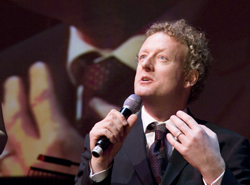The “B” Word
Ok, so I might be just the smallest, teensy-weensy, tiniest bit burned out.
…
But … I’ve been reluctant to admit it to myself (and to all of you.)
I mean …
For one thing, I still have a lot of …er … stuff to do whether I’m burned out or not.
How is whining about it going to help?
Stiff upper lip, nose-to-the-grindstone, no pain, no gain, you got to pay your dues and all that.
…
Second, isn’t my life as a musician supposed to be all milk and honey?
Should I really be complaining that I currently have enough work, exciting music projects and money?
What if I jinx it?
(What if one of my many “bosses” reads this?)
What if I’m actually really, really lazy and will never get back to work if I take a break?
What if I say no to something and miss the “opportunity of a lifetime?”
(What if I am whining? *grimace*)
…
So.
What finally got me to fess up (aside from the observations of my friends and family) was recalling my keyword for 2010 — nourish.
Overachiever that I am, I’ve done well in nourishing my performance opportunities, contract work options and my bank account.
I haven’t done as well at nourishing some of the other parts of my life.
You know, the sleep-in, exercise, eat healthy, spend time on my art, read-a-good-book, spend-time-with-friends-and-family parts.
…
We have a saying in my family — “more credit.” It’s how we remind each other to acknowledge the hard work, hard thing, amazing accomplishment, death-defying feat or tiny step one of us just finished.
Not to minimize or sweep under the rug. Or ignore.
(Like me, with my burnout.)
…
The truth is that I’ve done a ton of work since I graduated. Musicals, gigs and concerts. Coaching, directing and temp jobs. Blogs, grant applications and web work.
And right now I’m tired.
…
Now that I have admitted I’m burned out, I can do something about it.
In fact, I’ve scheduled a vacation to rest, recharge and rejuvenate.
…
Note: That means blog vacation, too, so I won’t be posting on Friday or Monday. *smile*
 As I mentioned in Friday’s post, I got to hear the UK’s ambassador of singing — Howard Goodall — speak last week. He talked about how the Sing Up program in Britain began.
As I mentioned in Friday’s post, I got to hear the UK’s ambassador of singing — Howard Goodall — speak last week. He talked about how the Sing Up program in Britain began.